Feeding your pet hedgehog the right diet is key to keeping them happy and healthy. These little guys are insectivores, so a balanced mix of high-quality hedgehog food, insects like mealworms or crickets, and small portions of fruits and veggies works best. Avoid fatty foods or anything too sugary, as hedgehogs can easily gain weight. Fresh water should always be available, and treats should be given in moderation. With the right nutrition, your hedgie will stay active, curious, and full of personality!
Understanding a Hedgehog’s Natural Diet
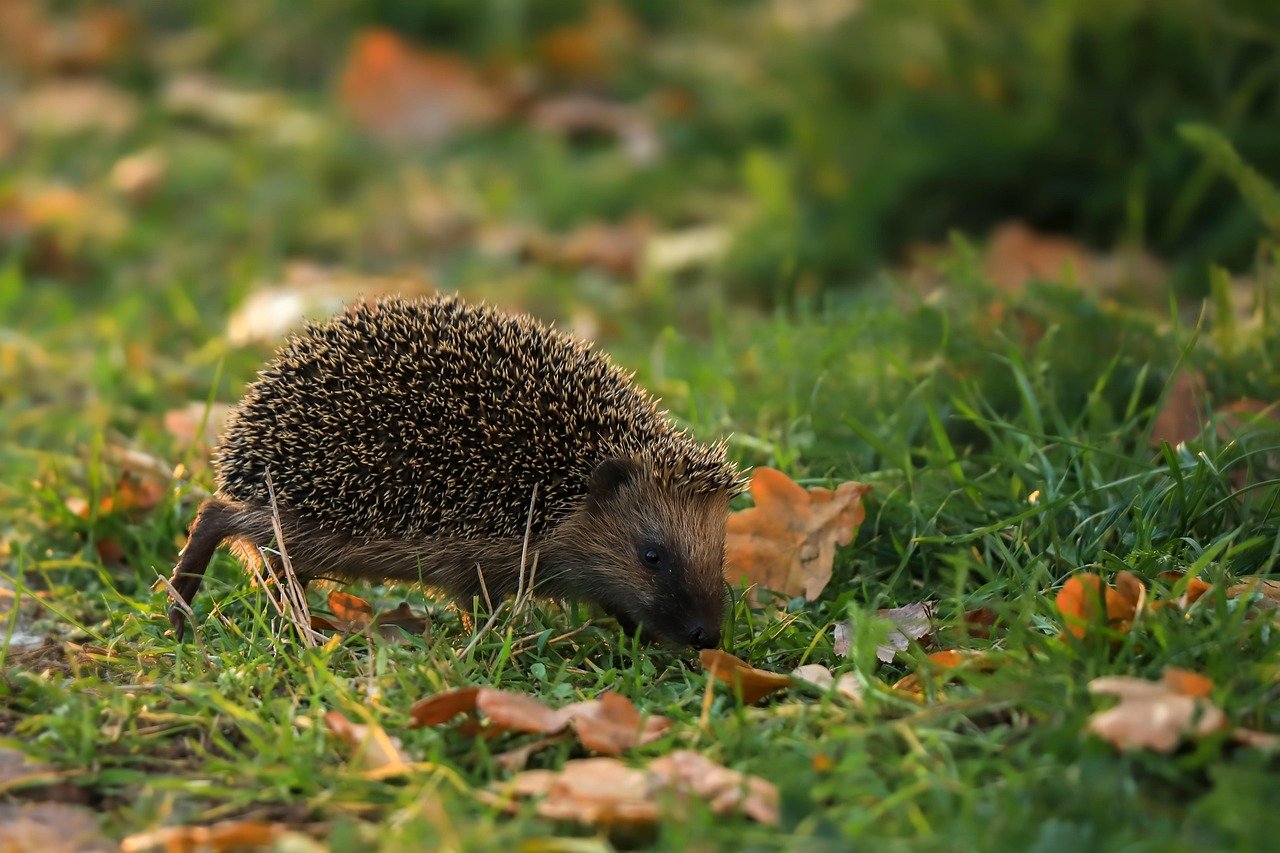
Wild hedgehogs spend their nights foraging for insects, worms, and small creatures. Their natural diet is high in protein and low in fat, which is a far cry from some of the commercial foods you’ll see on pet store shelves. They’re opportunistic eaters, munching on whatever’s available, including beetles, slugs, and even the occasional frog or fruit. When we bring them into our homes, it’s important to mimic this diet as closely as possible. Providing a variety of protein sources and keeping a close eye on fat content helps prevent health problems. If you offer only dry kibble, your hedgehog may miss out on essential nutrients. Remember, a bored hedgie can become a picky eater, so variety is key. Think of their meals like a colorful, nutrient-rich buffet—never dull, never monotonous.
Choosing the Right Commercial Hedgehog Food
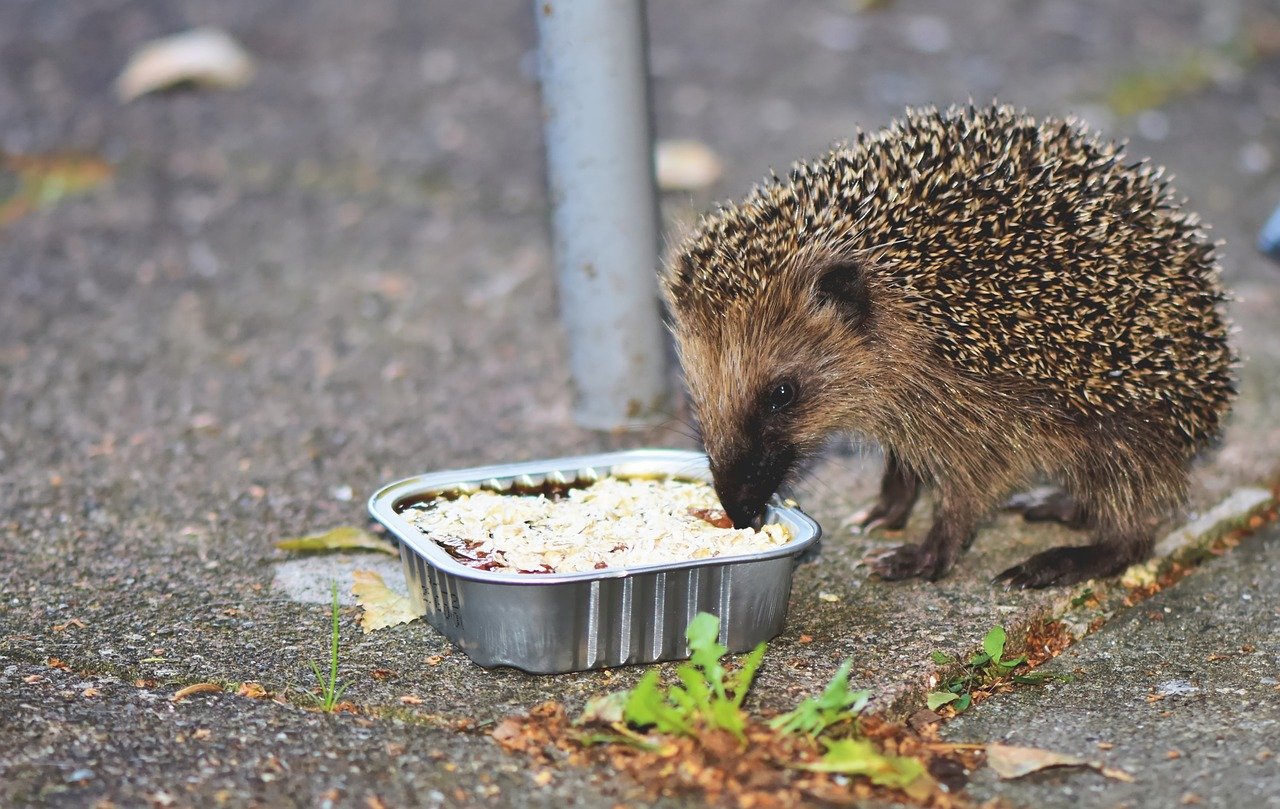
When you stroll down the pet food aisle, you’ll find several brands marketing “hedgehog food.” But not all of them are created equal. Look for products with a high protein content—ideally between 30% and 35%—and fat content under 15%. Avoid foods with large amounts of fillers like corn, soy, or artificial colors. If you see a long list of unrecognizable ingredients, put the bag back. Some cat foods, particularly those labeled as “indoor” or “weight control,” can be suitable, but always check the ingredient list. The first ingredient should be a named animal protein, not a by-product. If you’re unsure, ask your vet for recommendations. Don’t be swayed by flashy packaging; what matters most is what’s inside the bag.
Incorporating Live Insects for Protein
Nothing gets a hedgehog’s nose twitching like the scent of live insects. Mealworms, crickets, and dubia roaches are excellent protein sources, and they provide mental stimulation as your hedgehog hunts them. It’s like a treasure hunt for your pet, and it keeps them active and happy. However, moderation is crucial—too many insects, especially fatty ones like mealworms, can lead to obesity. Offer a few insects a couple of times a week as a treat or as part of their evening meal. Always buy insects from reputable pet stores to avoid pesticides or parasites. Watching your hedgehog chase a cricket is not just adorable—it’s a reminder of their natural instincts at play.
Safe Fruits and Vegetables for Hedgehogs
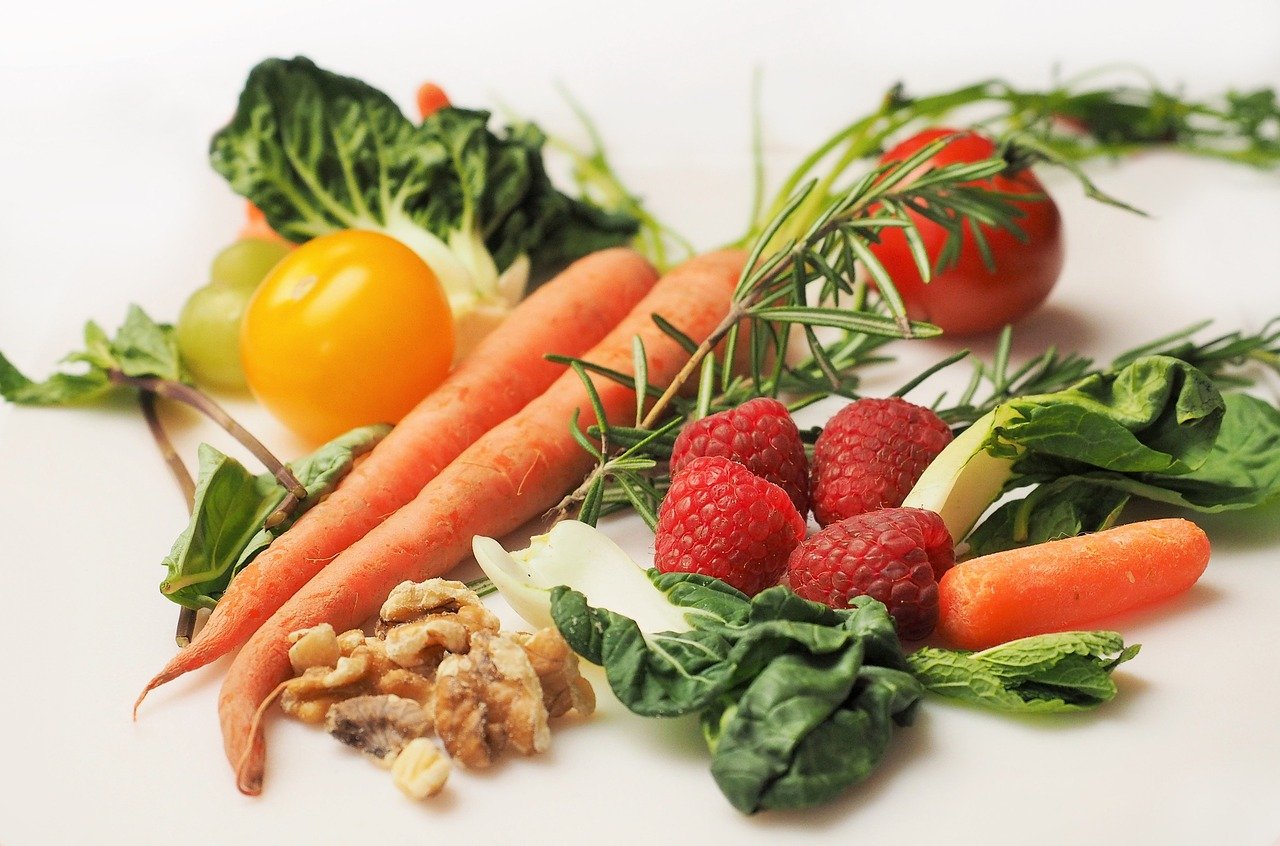
A small amount of fruit and veg adds important vitamins and fiber to your hedgehog’s diet. Safe fruits include apples, bananas, berries, and melons—all chopped into tiny, manageable pieces. For vegetables, try cooked carrots, peas, green beans, or sweet potato. Raw or hard veggies can be tough for hedgehogs to chew, so steaming or boiling is best. Avoid citrus fruits, grapes, onions, and potatoes, as these can be toxic. Always introduce new foods slowly and watch for any signs of allergies or tummy trouble. A hedgehog’s digestive system is delicate, so less is more—think of these as little extras, not the main course.
Foods to Avoid Completely
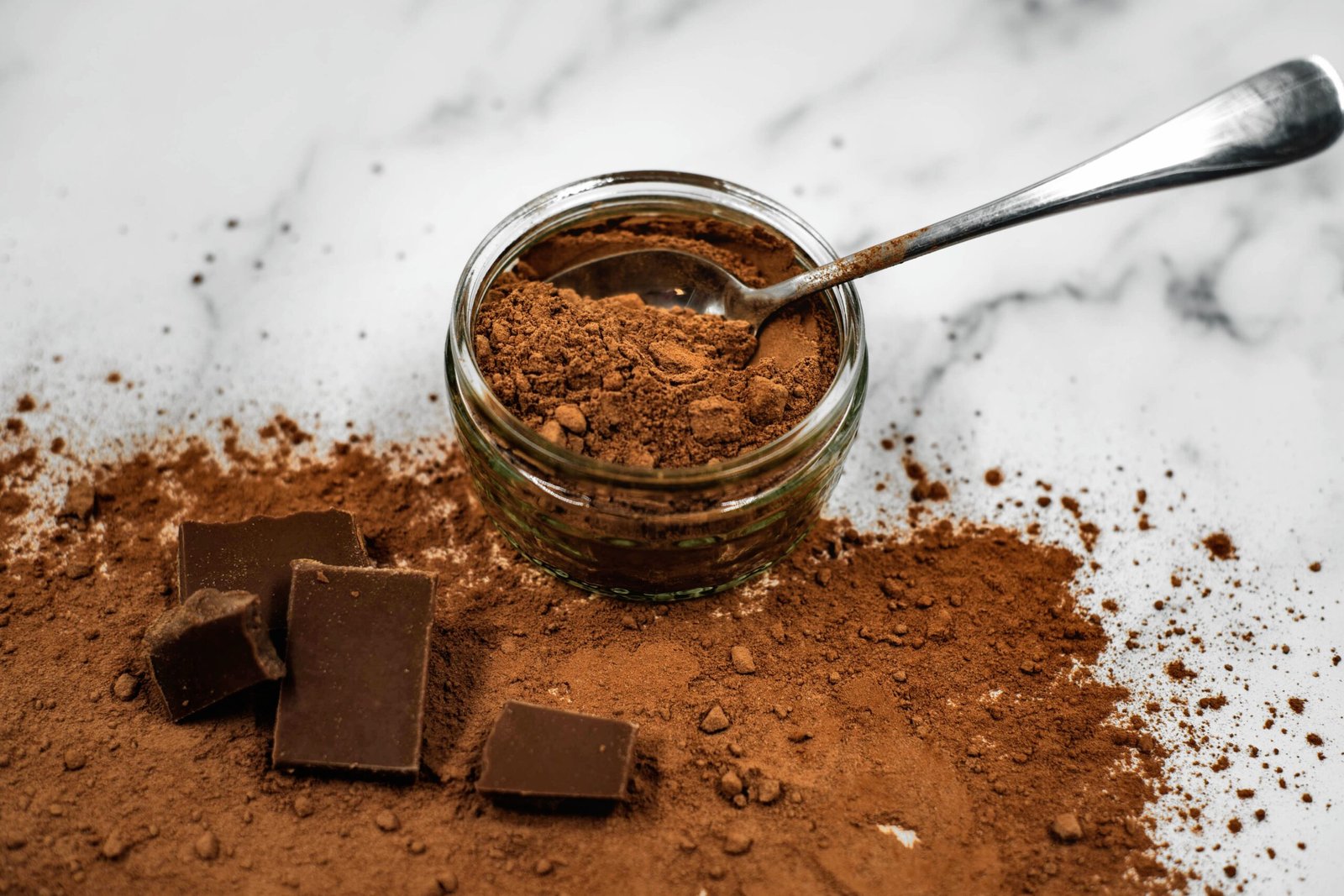
Some foods are downright dangerous for hedgehogs. Never feed your pet chocolate, caffeine, raw meat, avocados, grapes, raisins, nuts, dairy products, or anything spicy or heavily seasoned. These foods can cause everything from digestive upset to organ failure. Bread and processed snacks offer no nutritional value and can lead to obesity or even choking. If you’re ever in doubt, it’s safer to skip the treat than to risk your hedgehog’s health. Remember, just because a food seems harmless to us doesn’t mean it’s safe for your prickly pal.
Monitoring Portion Sizes
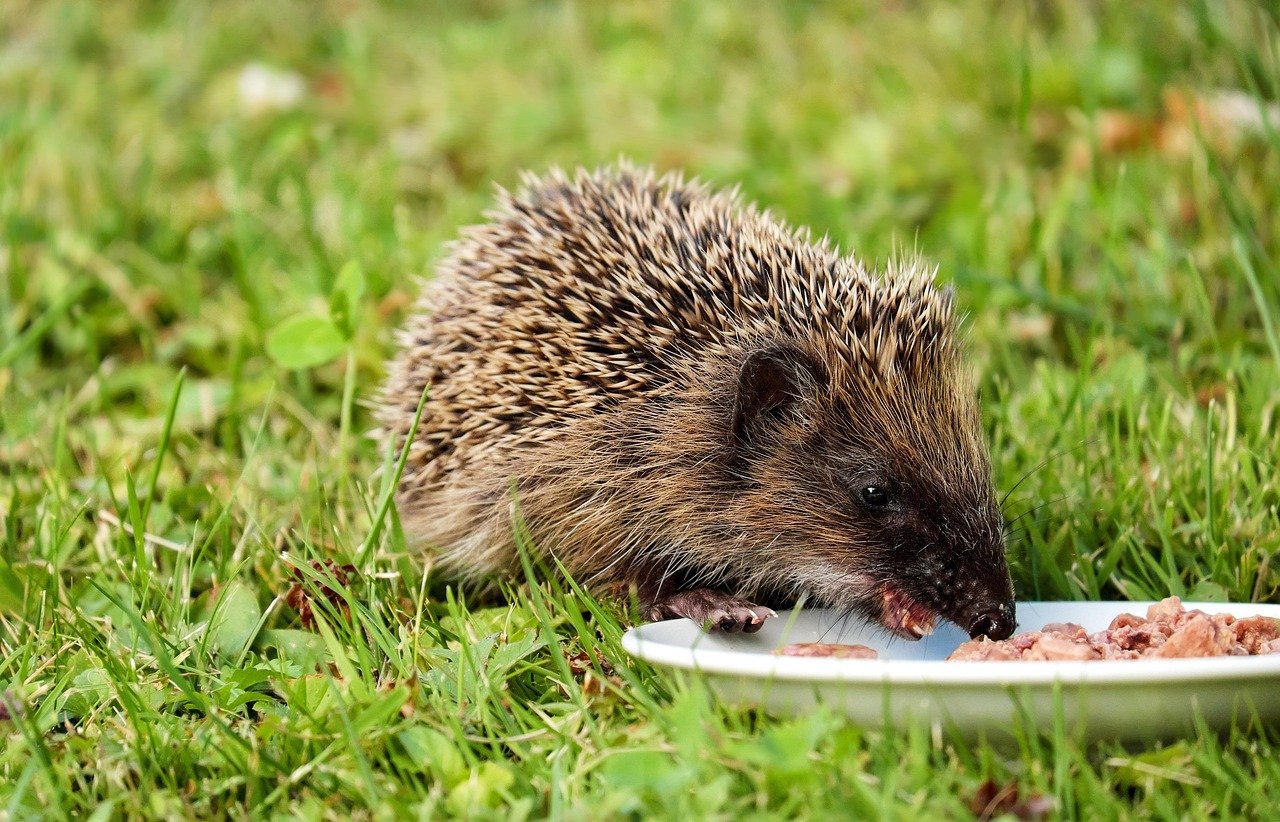
Hedgehogs are tiny creatures, but their appetites can be surprisingly big—especially if they’re bored or stressed. Overfeeding leads quickly to obesity, which is a serious health concern in pet hedgehogs. A typical adult hedgehog needs just a tablespoon or two of high-quality food each evening, plus the occasional treat. Use a small dish to help control portions, and remove any uneaten food in the morning to prevent spoilage. Weigh your hedgehog regularly and adjust portions as needed. If your hedgie is gaining weight, cut back a little and increase playtime. Keeping an eye on their figure isn’t just about looks—it’s about giving them the best shot at a long, active life.
Hydration: The Importance of Fresh Water
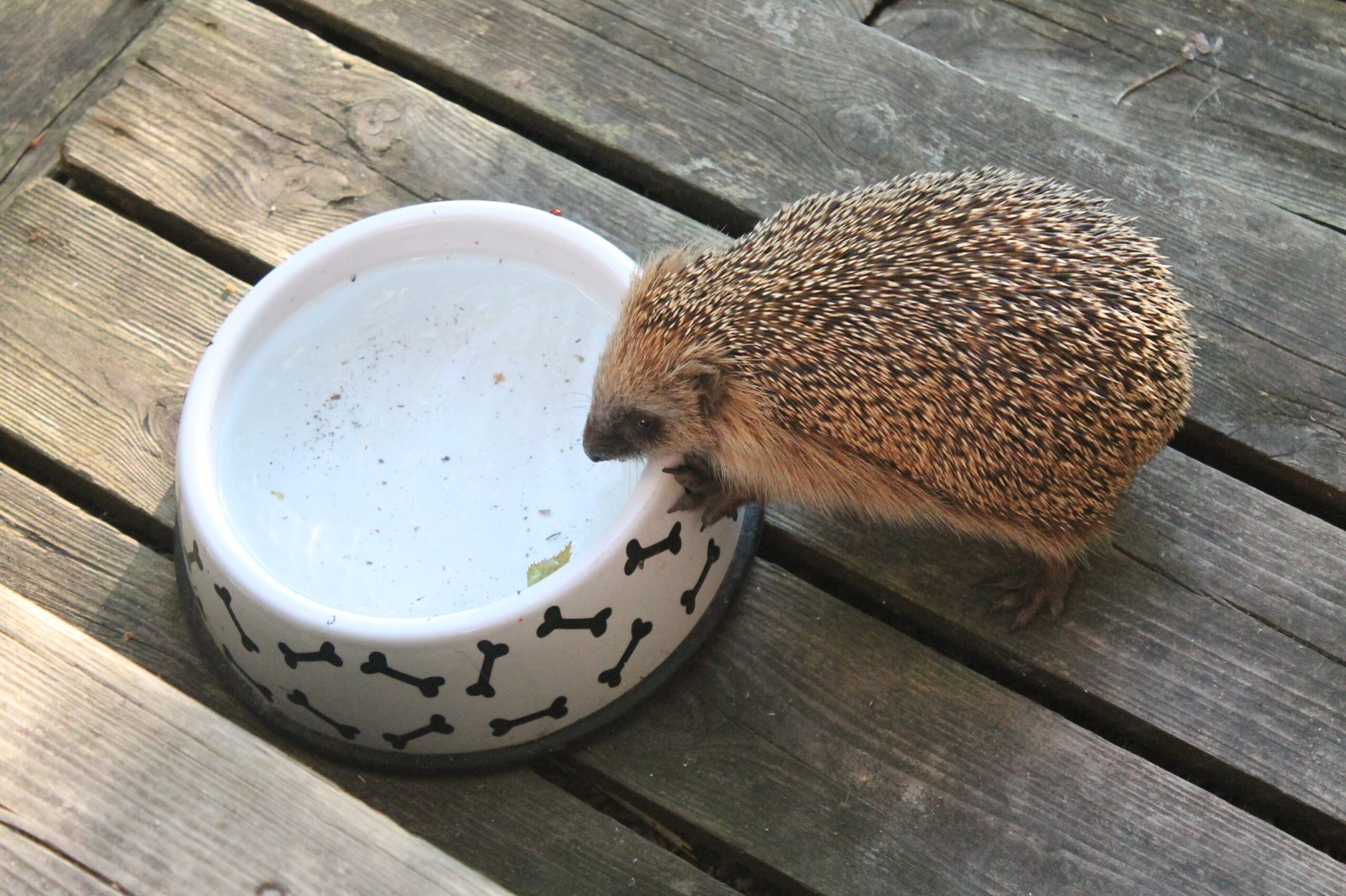
Just like us, hedgehogs need plenty of fresh water to stay healthy. Always offer clean, fresh water in a shallow bowl or a water bottle designed for small pets. Bowls are often preferred because they’re more natural for hedgehogs to drink from, but they can be tipped over. Check water levels daily and wash the container with soap and hot water to prevent bacteria build-up. Never offer milk or sweetened drinks—hedgehogs are lactose intolerant, and sugary drinks can cause illness. Dehydration can happen quickly, especially in warm weather or if your hedgehog is very active. Make water as accessible as possible, and you’ll have a happy, hydrated hedgie.
Supplements: Are They Needed?
Most healthy hedgehogs eating a well-balanced diet won’t need vitamin supplements. However, if your vet recommends one—perhaps due to a health issue or a picky eater—choose a supplement made specifically for small animals. Calcium supplements may be advised if your hedgehog isn’t getting enough from their food, but too much can be harmful. Never use human vitamins or supplements, as these can be dangerous. If you notice dull quills, lethargy, or changes in appetite, consult your vet before adding anything new to your hedgehog’s routine. Supplements are like a safety net, not a substitute for good food.
Feeding Schedules: When and How Often?
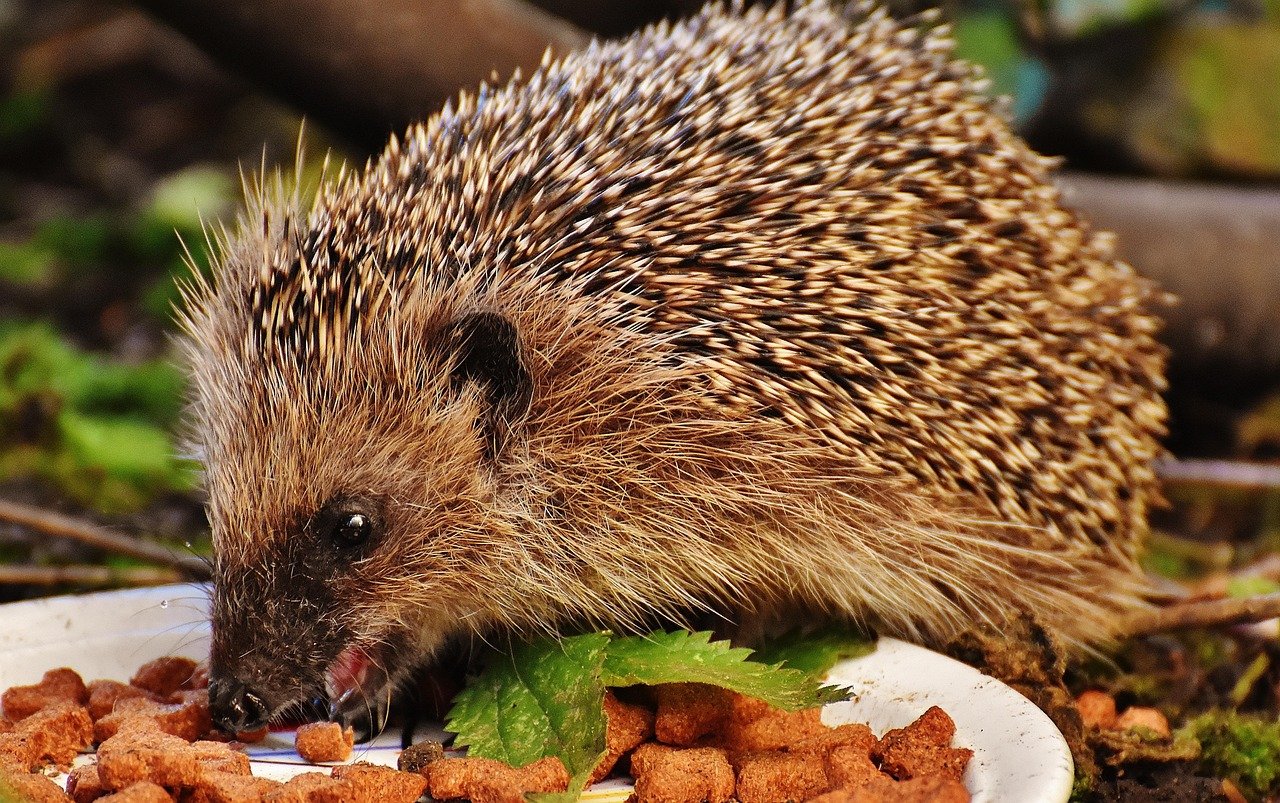
Hedgehogs are nocturnal by nature, so they’re most active (and hungry) at night. Offer their main meal in the evening, just before they wake up. Many owners choose to feed once daily, with a small portion of kibble and a treat of insects or fruit. Leaving food out overnight is fine, but remove leftovers in the morning. Avoid feeding too close to daylight hours, as many hedgehogs prefer to eat in darkness or dim light. Consistency is comforting for these shy creatures, so try to stick to a regular feeding routine. Watching your hedgehog sniff and shuffle out for dinner is a nightly ritual you’ll come to cherish.
Special Dietary Needs for Young and Elderly Hedgehogs
Baby hedgehogs (hoglets) and seniors have different dietary requirements than adults. Hoglets need more protein and calories to support growth, so higher-protein foods and smaller, more frequent meals are best. Elderly hedgehogs may require softer foods if their teeth are worn or missing. Monitor their weight and adjust as needed—older hedgies can lose condition quickly if they aren’t eating well. If your senior is less active, reduce fatty treats and keep meals easy to chew. Always consult your vet when caring for a hedgehog at either end of the age spectrum. There’s something heartwarming about seeing a little hoglet discover its first meal, or an older hedgie still enjoying a favorite snack.
Dealing With Picky Eaters
Some hedgehogs can be frustratingly fussy about food. They may refuse new items, stick to one favorite, or even turn up their noses for days at a time. If this happens, try introducing new foods very slowly, offering tiny amounts mixed with familiar favorites. Change up the presentation—try dicing, mashing, or warming up the food slightly to enhance the aroma. Never force-feed or withhold food to coerce your hedgehog. Patience is key; most hedgies will come around with gentle encouragement. If your hedgehog goes more than a day without eating, seek veterinary advice. Feeding time can be a puzzle, but with a little creativity and love, you’ll find what works.
Signs of a Healthy Diet in Your Hedgehog
A well-fed hedgehog is a joy to watch. Look for bright, clear eyes, a shiny coat of quills, and steady, playful energy. Healthy hedgehogs have firm, regular stools and maintain a consistent weight. Their noses should be moist, and their movements confident and curious. If you notice changes—such as weight loss, dull quills, lethargy, or diarrhea—it may be time to reconsider their diet or visit the vet. A healthy diet doesn’t just show on the outside; it’s the foundation for every happy, snuffly moment you share with your hedgehog.
Feeding your hedgehog right isn’t complicated—it just takes a bit of care and balance. With a mix of quality food, the right insects, and the occasional healthy treat, your spiky friend will thrive. Just remember to keep portions in check and avoid anything too sugary or fatty. A well-fed hedgie is a happy, active one—and that means more fun for both of you! That’s the simple, heartfelt truth about feeding your pet hedgehog a healthy diet.





